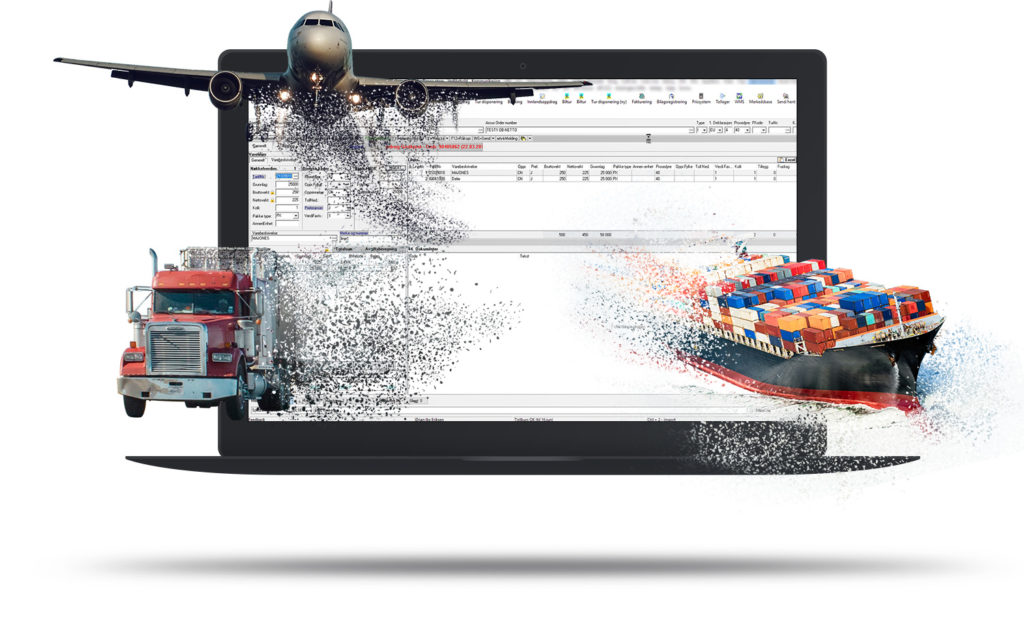Emma Sped
Road, air and sea
Emma Sped is designed to make it possible for a commission to combine the three means of transport – road, sea and air – without having to register the data more than once. These data are integrated into a common declaration routine for import and export, with the facility to connect commissions up against the Norwegian Customs electronic transit system (NCTS).
Emma Sped contains most documents relating to the various transport alternatives, with optimised registration of accompanying data. The system focuses on invoicing and financial follow-up of the order.
In relation to this, an advanced pricing module is available in which prices for the various tasks involved in an order are calculated on the basis of order type, number of units and the dimensions and weight of goods. Calculation models are defined by order type, which in turn form the basis for invoicing the client.Transport costs are calculated by stated volume and/or weight in combination with locations of despatch and delivery. Pricing is based on standard prices or on prices agreed with individual customers. Agreed transport costs and sub-contracted services can form the basis of subsequent invoice checking and cost calculations per order and customer.
Emma Sped has its own invoicing system
In order to make transport logistics even easier, Emma Sped contains a flexible invoicing system which straightforwardly transfers calculated data from orders over to invoices. Expenses in the form of customs duty and VAT, transport expenses and services can all be invoiced – all with good control over all transport-related tasks. Invoices can be generated as paper copies or sent by email or e-invoice (EHF). Emma Sped is ideal if you want straightforward and stable transport logistics without unpleasant surprises.

Air
The air transit module in Emma Sped consists of a number of functions, including a dedicated dashboard for keeping an eye on relevant data in connection with particularly costly commissions. A number of transport firms in the salmon-export business, for instance, have contributed to this in order to create predictability and greater oversight while dealing with the commissions.
Bookings are sent to the airlines via Descartes, while business is done at agreed prices, calculated according to the individual destinations. Freight invoices from most airlines are imported via CASS, and this is matched up against the orders via AWB. Any disparities against sales are reported automatically.
A dedicated integrated routine deals with invoicing for the order; either “all in” or specified.
Road
Road haulage is normal for transport orders with manifests and CMR, along with advice of delivery. Data from such orders can be transferred into the declaration routine without the need to do anything other than to register the invoice value and accompanying tariff number. Transport cost can be calculated on the basis of weight and dimensions as well as destination. The system allows for a road-transport programme split into several sections.
Sea
As with road delivery, data that is typical for shipping, containers and ship docking times etc. can be registered. It may, for instance, be typical that a ship will be carrying several orders on the same leg of a journey.

We can help you
We work tirelessly to offer the best solutions for our customers at all times.
